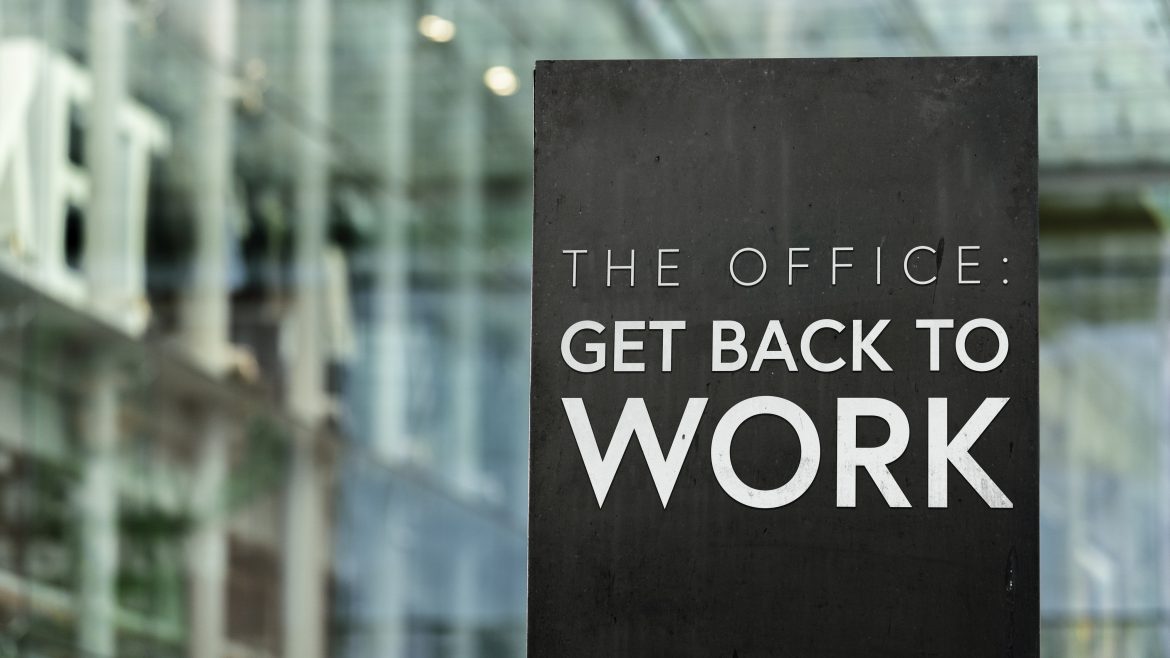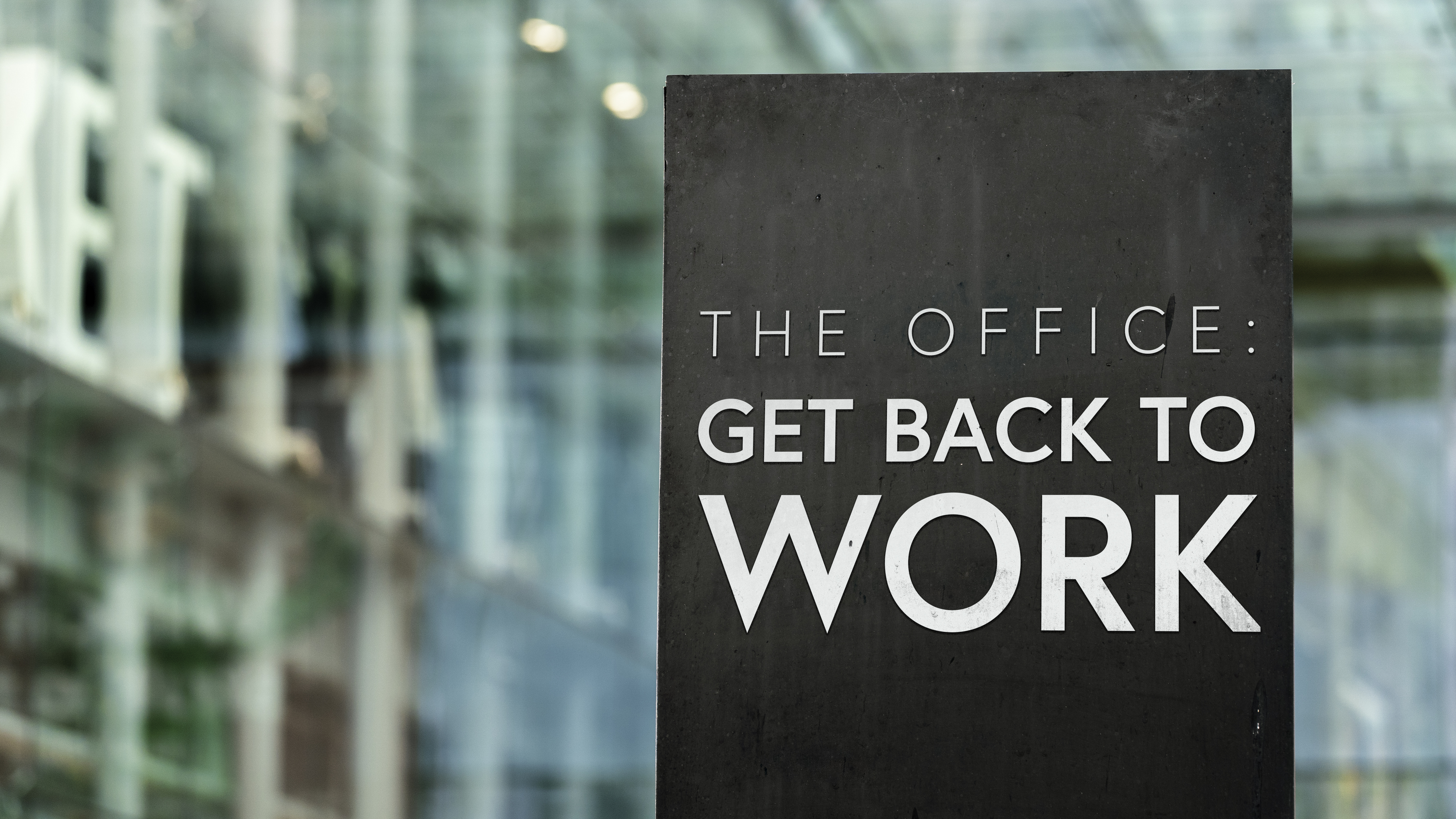
Major companies say productivity and creativity are suffering from remote work and are now ordering workers back to the office or face firing. In this Tough Things First podcast, Ray Zinn explores the pluses and minuses of remote work and why this back-to-the-office trend is a needed correction.
Rob Artigo: I’m Rob Artigo, your guest host for this edition of the Tough Things First podcast, where I get a chance to talk with Ray Zinn, as noted, the longest serving CEO in Silicon Valley. And that’s for good reason. He’s an expert, a CEO, a professional and inventor, you name it. Hi Ray, it’s great to be back.
Ray Zinn: Good to be with you again, Rob. Thanks.
Rob Artigo: Well, researchers at Stanford University reported a survey just about last month about working from home and what people’s habits are right now. They said about 12% of full-time employees surveyed were fully remote, 12% of the American workforce, fully remote. 59% were full-time on site, and 29% were hybrid workers. So by my count, that means 41% of the workers in this country are remote or hybrid. Does that sound about right to you?
Ray Zinn: That’s about right.
Rob Artigo: I think that Covid has greatly altered the way that Americans do business and the waning end of this, apparently this pandemic has started the reverse process. Big tech companies like Meta, famously recently saying, we’re going to force people to go back to work and come into the office, or we’re going to fire people. So what’s behind that effort? Is it just the end of Covid?
Ray Zinn: Apple’s doing the same thing? So we have what we call the 80:20 rule. 20% of the people do 80% of the work, or 80% of the people only do 20% of the work. It’s kind of like a river, it’ll form its own stream, its own bed, own path. And so depending upon what kind of individual you are, you will determine what kind of work habits you’re going to have. So working for home, if you’re highly disciplined, here’s what discipline is defined as doing what you don’t like doing and doing it well. So if you’re highly disciplined, that means you’ll do the tough things first. Whether you work from home or whether you work in the office, you’re still going to get the job done. But that’s only about 20% of the people. And of course, we can’t find and fill our job requirements with 20% of the people. We’d like to, I mean, every company looks for those 20%, but every other company’s looking for those 20%.
So unfortunately the other 80%, and maybe some of you who are listening fall into one of those categories, either the 20 or the 80. Just can’t get the discipline to stay on target, on job, on the process of what it is you have to accomplish for your company. And so some jobs can be done remotely and it shows if they’re not being done correctly, like accounting or maybe legal or some other job that you don’t have to be running a machine or something, producing product, flipping burgers or whatever.
So there are jobs that can be done remotely and be done well, and you can tell if they’re done well because it’s like a production machine, it’ll produce so much work. And so in those cases, working for homeless would be okay, but then there are those jobs which require interaction with people and that your fellow workmates or whoever that will require you to actually be at work, be there because you need the discipline. You need somebody there checking on you, looking over your shoulder as you would, micromanaging you. So unfortunately since most companies can’t find those top 20% that are self-disciplined, they’ll just push everybody back to work. The people who are the good disciplined individuals that could work well from home, they’re going to have to go back to work because the company can’t differentiate. They’d be sued, they’d be forced to either go one way or the other.
Rob Artigo: I know somebody who works from home, she works in tech or IT, she’s only 15 minutes away from the office and the company wants to get people back into the office, telling people that they’re going to make them do a certain number of days in the office. And it comes down to the fact that during the last few years, the people that they’ve hired on her team are everywhere else. They’re in other states. They could be in Georgia or they could be in Texas or they could be in Seattle or something like that. And she’s the only one who’s close by, so they wouldn’t ask any of those other people to go to the office because they were hired remote and they’re way far away, so they’re not coming into the office. So then why would they bring this one person into the office? They were going to make her go in there.
She’s like “All I would do is sit on my computer in a cubicle and do what I’m doing at home, which is just talking to people on video chats and things like that.” And they go, “Yeah, that makes sense. It would make no sense for us to require one person on the team to come in a couple days a week.” But I heard yesterday somebody else talking about how if he had people who insisted on working remotely and didn’t want to come into the office, that he would assign them tasks at 3 o’clock in the afternoon and then send an investigator over to do surveillance on them and see if they’re actually at home. If they go out and they’re shopping at 3 o’clock and they tell you they were doing the job at 3 o’clock, then you would go, “Nope, I know I hear some pictures of you trying on dresses.”
I thought that was a funny approach. I don’t think that that would happen, but when you’re in a creative environment particularly, you need that face-to-face interaction. Oh, let me add one last thing. I’ll let you start talking. That reminded me of the quote from Martha Stewart yesterday that I heard. So she decried this work from home thing altogether, and she said, because she works in a competitive creative environment, it requires collaboration that you can’t really do on video and rely solely on video. So she said this, “You can’t possibly get everything done working three days a week in the office and two days remotely. Look at the success of France with their stupid, that’s her words, not mine off for August, blah, blah, blah.” Stewart told this magazine, that’s not a very thriving country. Should America go down the drain because people don’t want to go back to work? What do you think of that?
Ray Zinn: Well, going back to work, I think having that interaction is good. Working from home is like playing video games, I mean, you’re just you and the computer and unfortunately there’s not that humor interaction. There’s not that collaboration as Martha Stewart said. Now, Martha Stewart’s my age, and so she’s just kind of old hat anyway. But anyway, we’re going to learn to be able to work remotely and do it in a positive way. Unfortunately, as I said, 20% of the people are disciplined and 80% are not. And if you’re a disciplined person, then you can be very effective working from home and you need to demonstrate that. So if you want to work from home, then you have to demonstrate that you can be effective working from home. If you can’t do that, then you’re going to go back to work back at the office.
And unfortunately, most of us, 80% are going to have to go back to work because we need somebody to supervise us. We need somebody looking over our shoulder, somebody micromanaging us. It’s a terrible job. It’s a terrible function to have to be managed like that, but we cause our own demise. If working from home is not being effective, then they’re going to change the program. I know that Apple, my son works for Apple and I know that he’s now required to go into work three to four days a week, I think, I don’t know if it’s exactly three or if it’s three or four, but he can work from home either one or two days a week. And that’s kind of a hybrid, kind of placating it. But at some point they’re going to put everybody back in the office because as I said, the problem is 80% of us don’t have the discipline to work from home.
Rob Artigo: I just picture in my mind a workspace at Tesla and there’s a design team of guys over here doing this and kind of shaping what the car is going to look like, and these people over here are doing this and there’s that excitement going around and people are hearing and seeing things, and they’re getting inspired by what’s going on and this energy that’s happening in a creative environment. Let’s face it, when you’re at home, particularly if you’ve got a job where you’re kind of making notes and you’re scribbling things to design something, but you’ve got your TV on or you’ve got the radio on, or you’ve got music playing and you’ve got your cat running across your computer and your dog’s barking out, the weed blower is going on and you don’t have that energy, you don’t have that hive mentality of that creativeness. That’s the stuff in a creative company I think you have to have, and that’s why you need people to together.
Ray Zinn: Well, this is distraction. So at home, there are distractions. At work, there are less. I’m not going to say there’s no distractions at work, but there are a lot less distractions at work than there are at home. The kids running around, the phone ringing, the TV going, the doorbell ringing, the dog barking, the whatever. We have far too many distractions at home, and distractions take away our focus. That’s why I think most companies at some point are going to have everybody come back to work. It’s just works better.
Are there advantages to work from home? Absolutely, but not for the company. The only advantages for the employee. And so the companies see that. And now that the pandemic is “behind us”, companies are going to bring you back into the office. You’re just going to have to face up to it. It’s just the way it’s going to be. Will it always be that way? I don’t know. I mean, right now there is a push now to get everybody back into the office.
Rob Artigo: Well, I want to see the creative environments buzzing again like I once had. As always, you can reach out to Ray Zinn with your questions at toughthingsfirst.com. Continue your education and the conversation, podcasts, blogs, links to information about Ray’s book Tough Things First, and also the Zen of Zinn Series 1, 2, and 3. Thanks, Ray.
Ray Zinn: Thanks, Rob. Good to be with you again.


